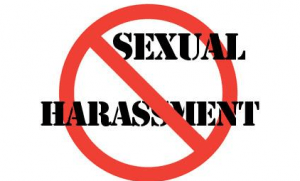Online child sexual exploitation, a security threat in Ghana – Forum
 A two-day stakeholder forum to explore workable strategies to eradicate the negative effects of the use of electronic media on children has been held in Accra.
A two-day stakeholder forum to explore workable strategies to eradicate the negative effects of the use of electronic media on children has been held in Accra.
The forum on the theme: “Stakeholders brainstorming session on on-line child sexual exploitation- an emerging security threat in Ghana,” would help us craft a national response to this creeping and insidious menace.
Under the auspices of the Ministry of Interior with support from UNICEF, the forum attracted participants from the National Communication Authority, the Ghana Bar Association, Kofi Annan Peace Keeping training centre, Ghana Telecom University, the Police and other NGOs dealing in the area.
Participants discussed topics such as, global perspective on on-line child sexual exploitation, the realities on the ground, effects of the Internet on children, programmes designed to ensure a safe Internet environment for children in Ghana.
They also discussed nipping the threat in the bud and making the Internet safe for children-the role of stakeholders in telecommunications, legal framework against child pornographic material on the internet and strategies to mitigate child pornographic materials on the internet.
Mrs Adelaide Anno-Kumi, Chief Director, Ministry of Interior in a welcome address said some criminally minded persons are taking advantage of these otherwise, very useful devices to lure and groom our children into child pornography and other related crimes.
“The smart phones, tablets, laptops and desktops are easily available and people have access to all manner of softwares and applications to source for and exchange ideas, information, data and pictures across nations as well as across continents.
“We cannot blame the youth for technology has come to enhance our lives and promote development but this has to be used to impact positively on our lives.”
The devices make it difficult to trace and track the criminal effects on the vulnerable especially the girl child, who must be protected. University students can be lured and groomed to take the wrong decisions when they resort to the use of technology without caution.
“We do not consider this as an invasion of the individual’s privacy but the security of the weak and vulnerable in the society which is within the mandate of this Ministry is of grave concern.
“She said the Ministry would do everything within its power to ensure that the country is safe and secure to enable all persons pursue their legitimate social and economic activities hindrance.
“Mrs Anno-Kumi said the Ministry was constrained by resources to undertake any tracking and tracing, which would require technology, knowledge and expertise.
Mrs Joyce Odame, Child Protection Officer at the UNICEF said child sexual exploitation is a type of sexual abuse in which children were sexually exploited for money, power or status not by physical contact but online.
She said around 50,000 people in the UK download or share online images of child sexual abuse in 2012, in Japan 99 per cent of children aged 10-14 and 90 per cent aged 15-to 19 in 2006 and in 2009 Russia nearly all school children aged 14 to 17 from regions had access to the internet and over 59 per cent spend several hours on the internet.
In sub-Saharan Africa, overall internet penetration has grown over 2500 per cent the last decade, in South Africa in a study of 934 adolescents aged 13-17 in urban areas, 52 reported accessing the internet at home and in Ghana, 14 per cent of children indicated they had used the internet for pornography.
Mr Christopher Lartey, Programme Officer at the Department of Children said the child and family welfare policy looksed at generally empowering children out of situations that would push them into such exploitations and abuse.
He said computer and computer-related crimes Act was drafted in 2005, which would provide more protection for children and recognize the use of technology in the commission of crimes but as yet this has not become law.
Results of a group discussion showed that participants unanimously suggested that research into the issue was very important to serve as a basis to help address the problem and map out a legal framework to combat the menace.
Source: GNA
